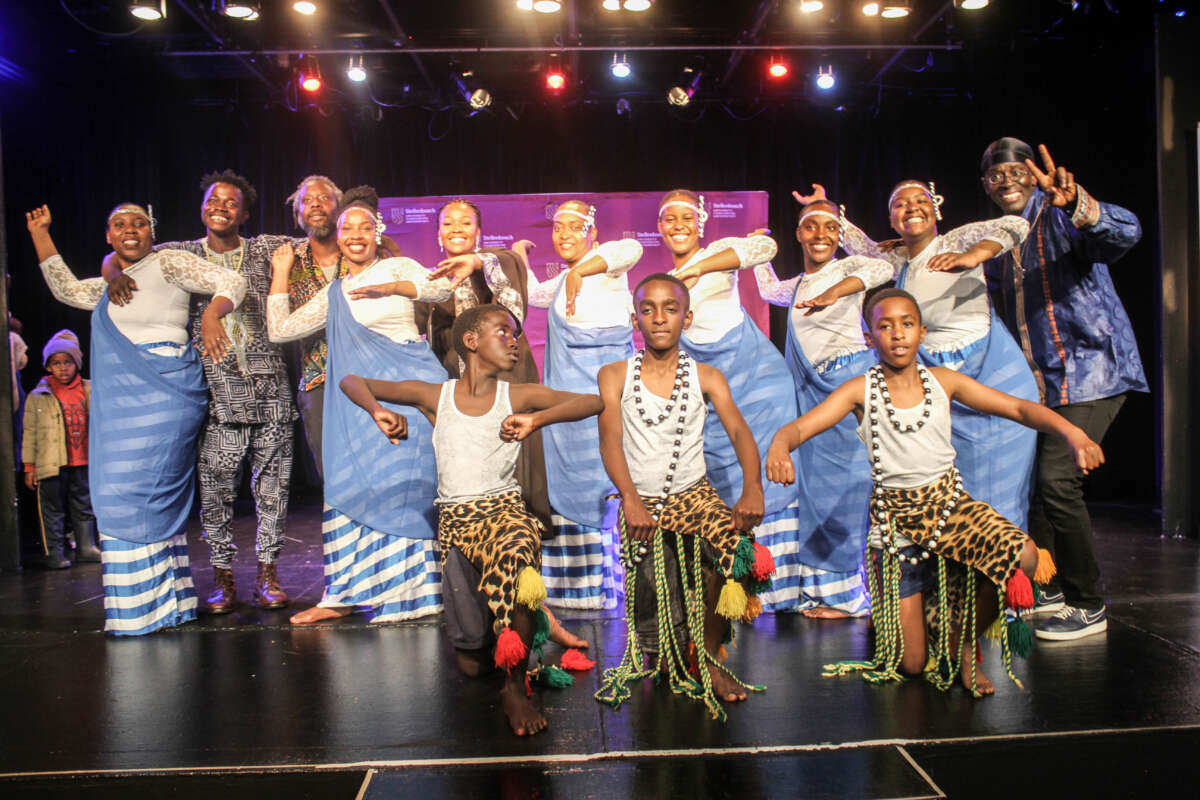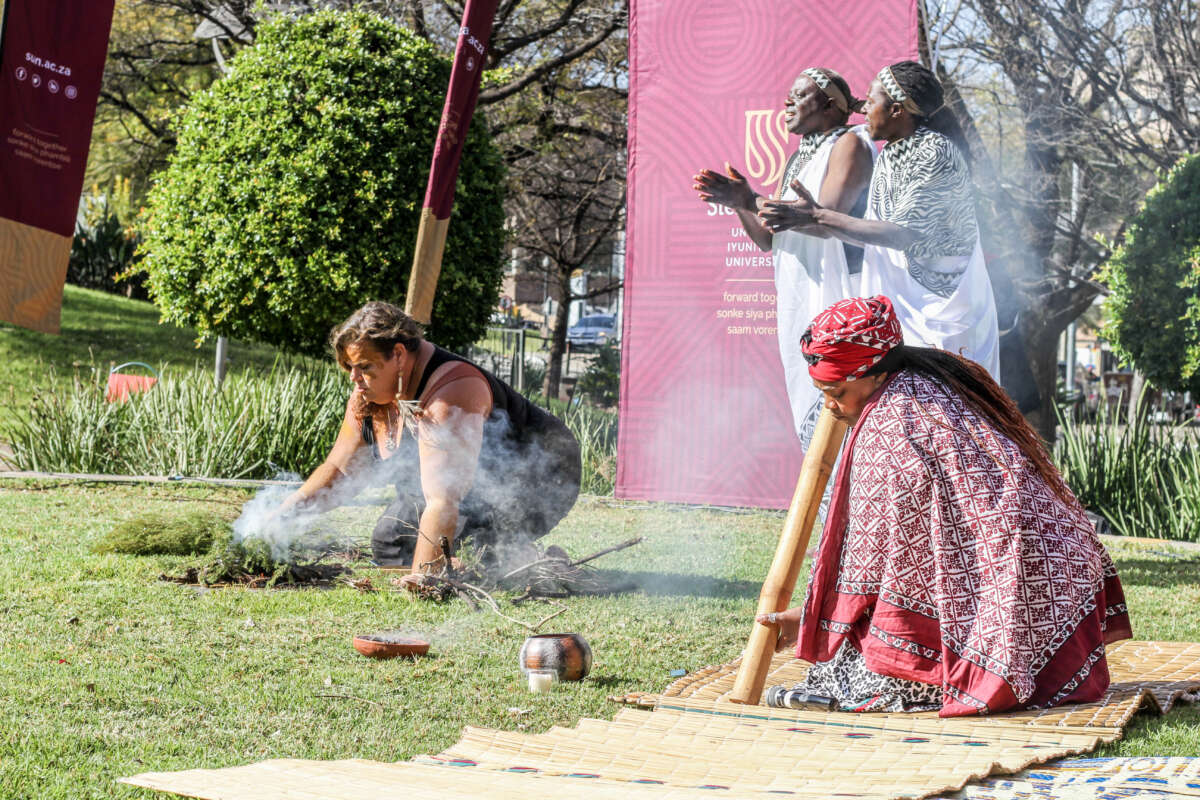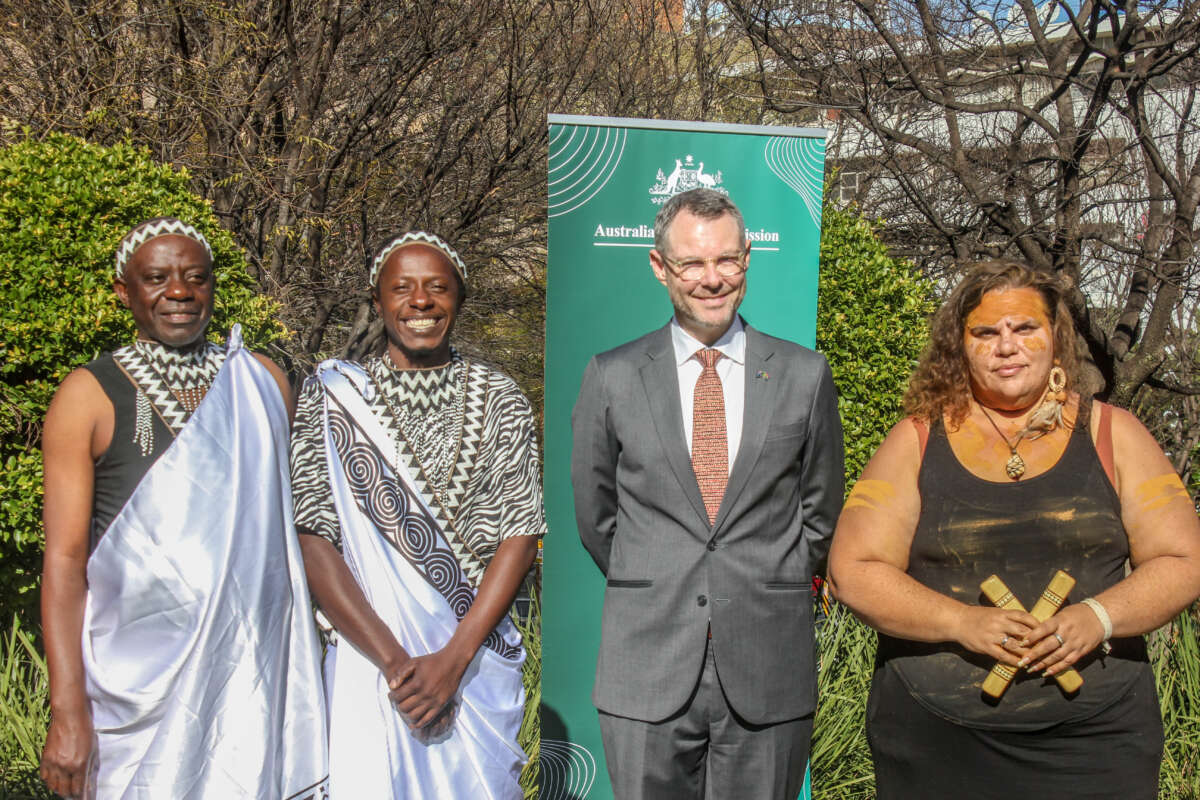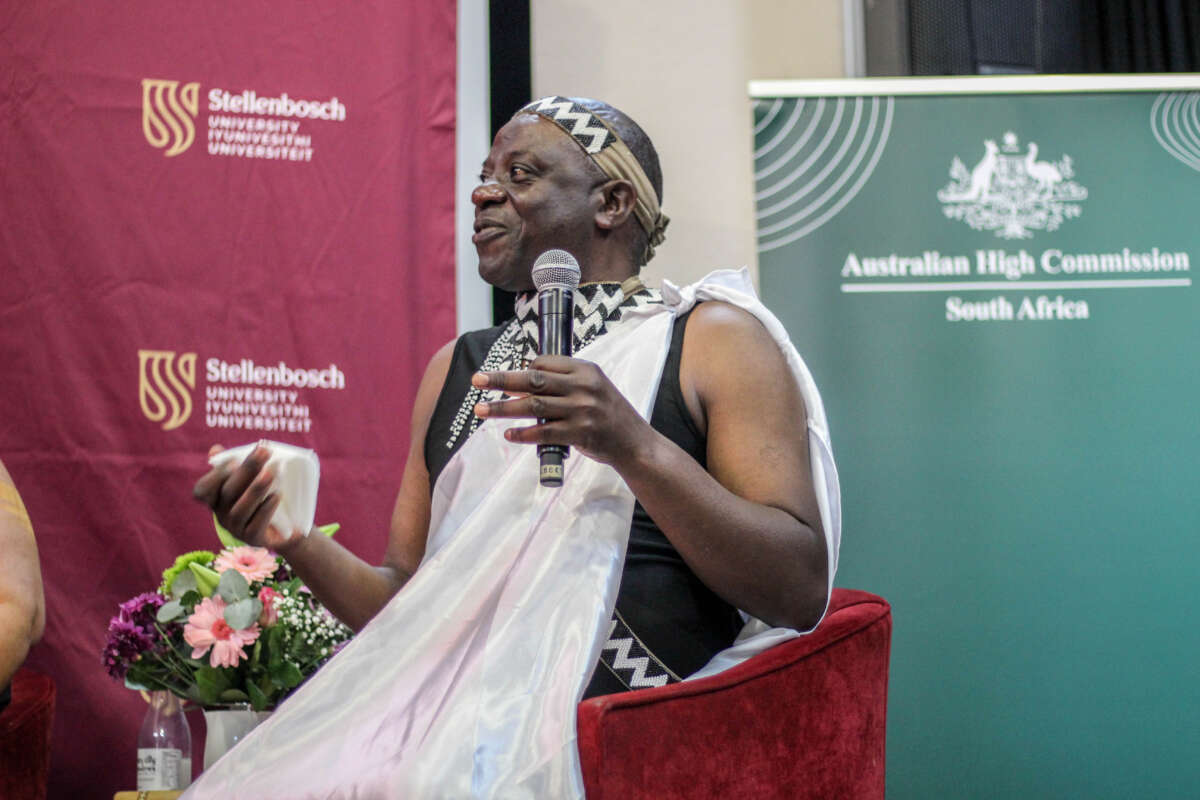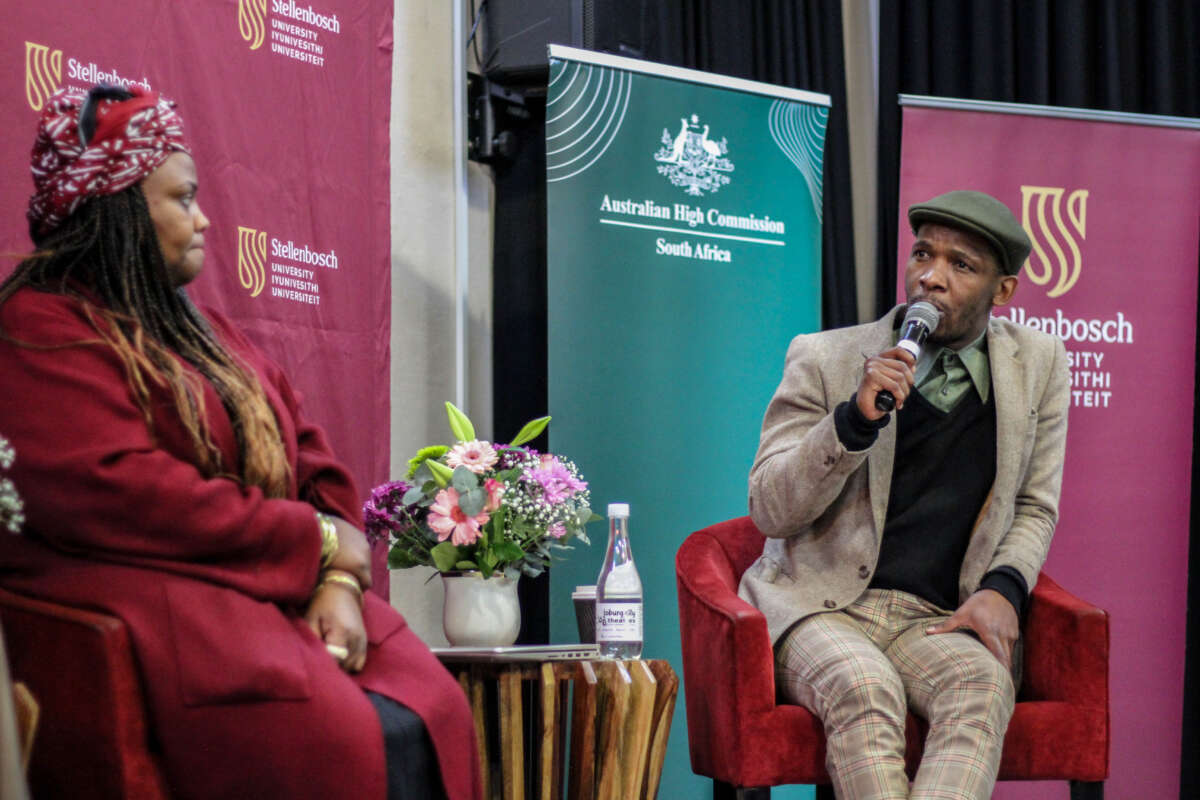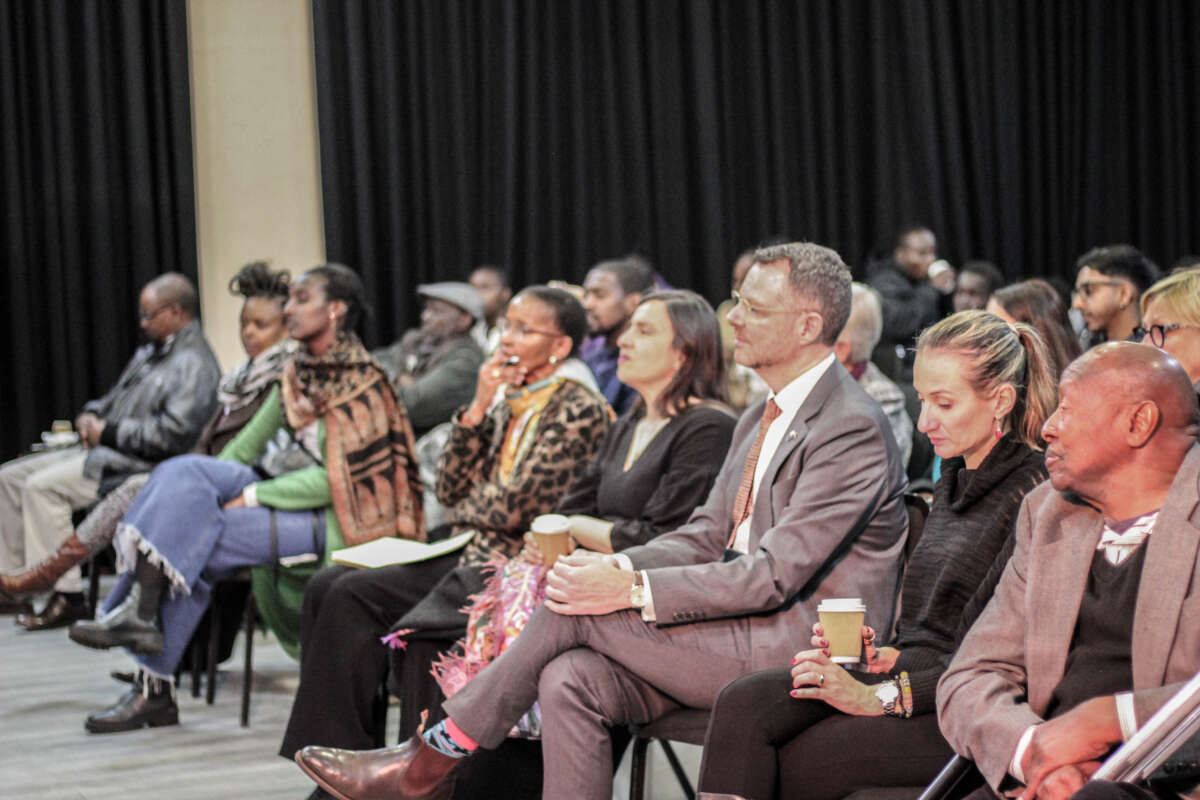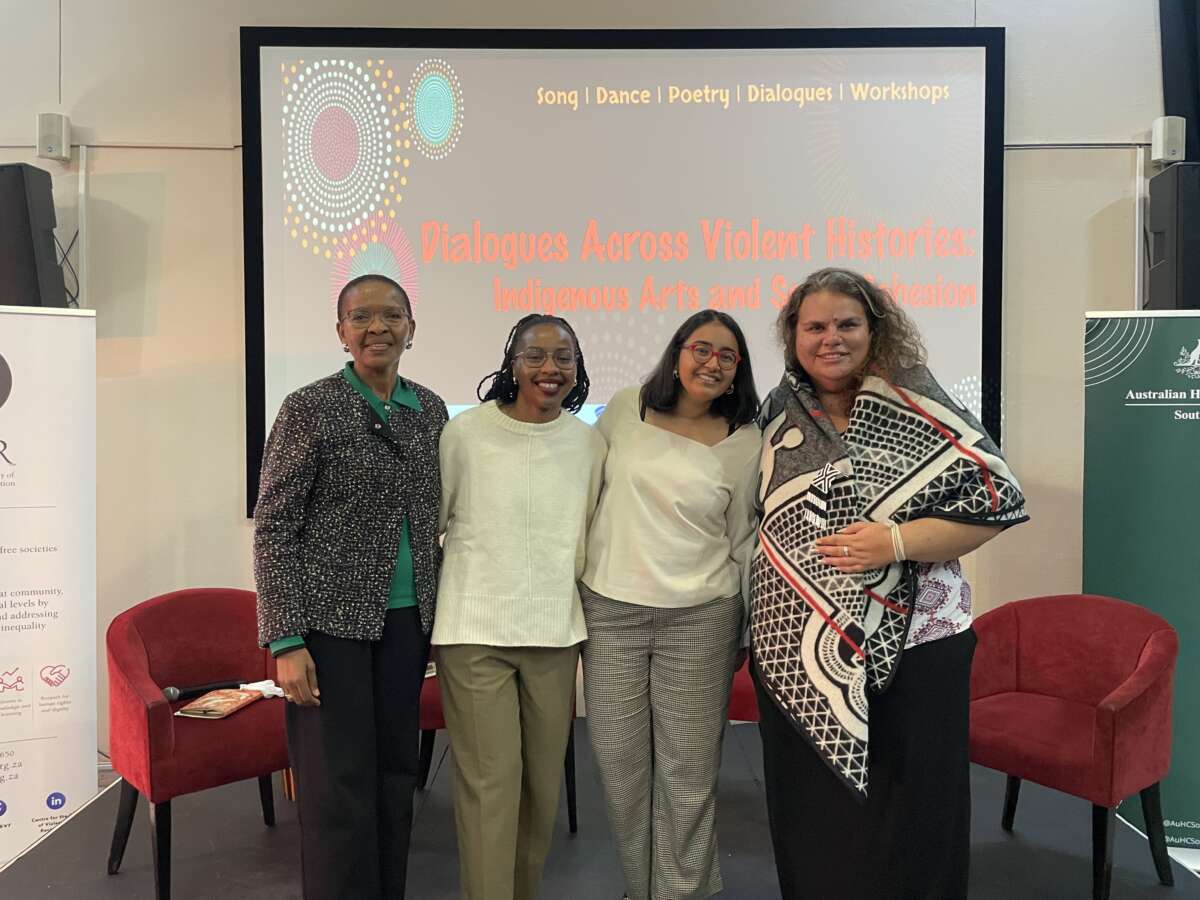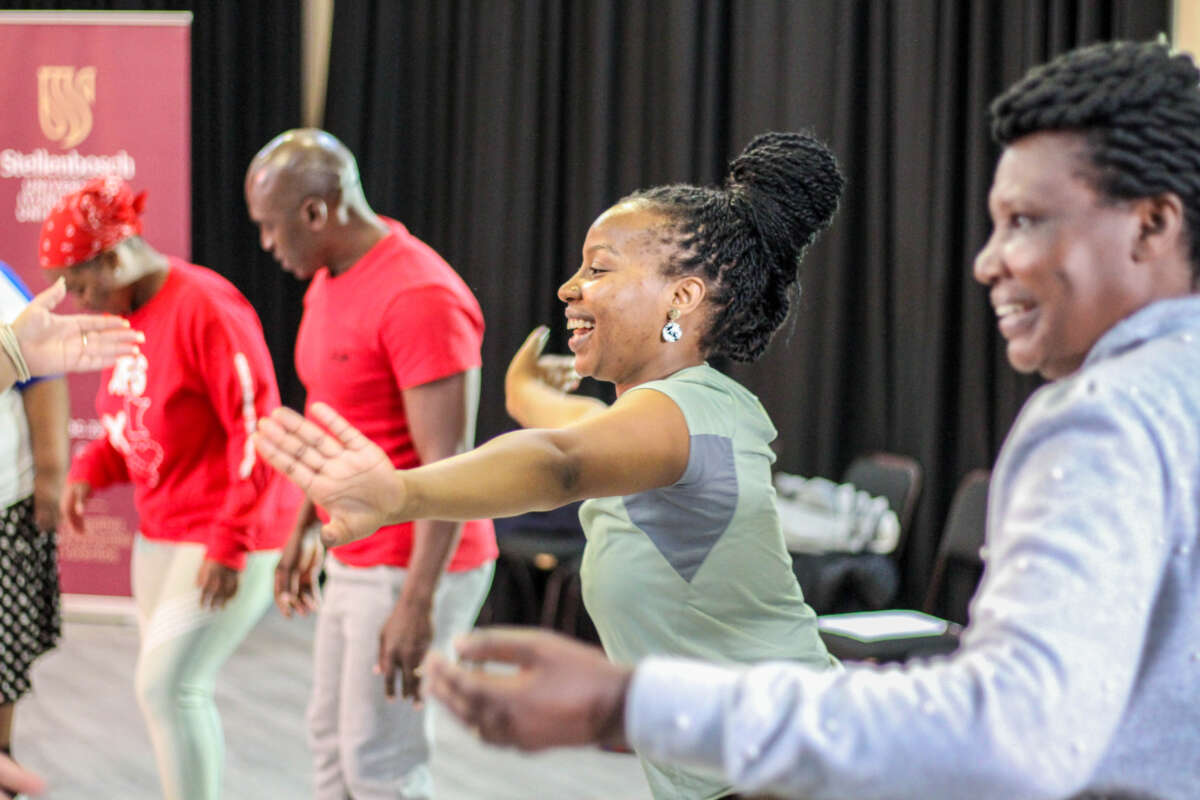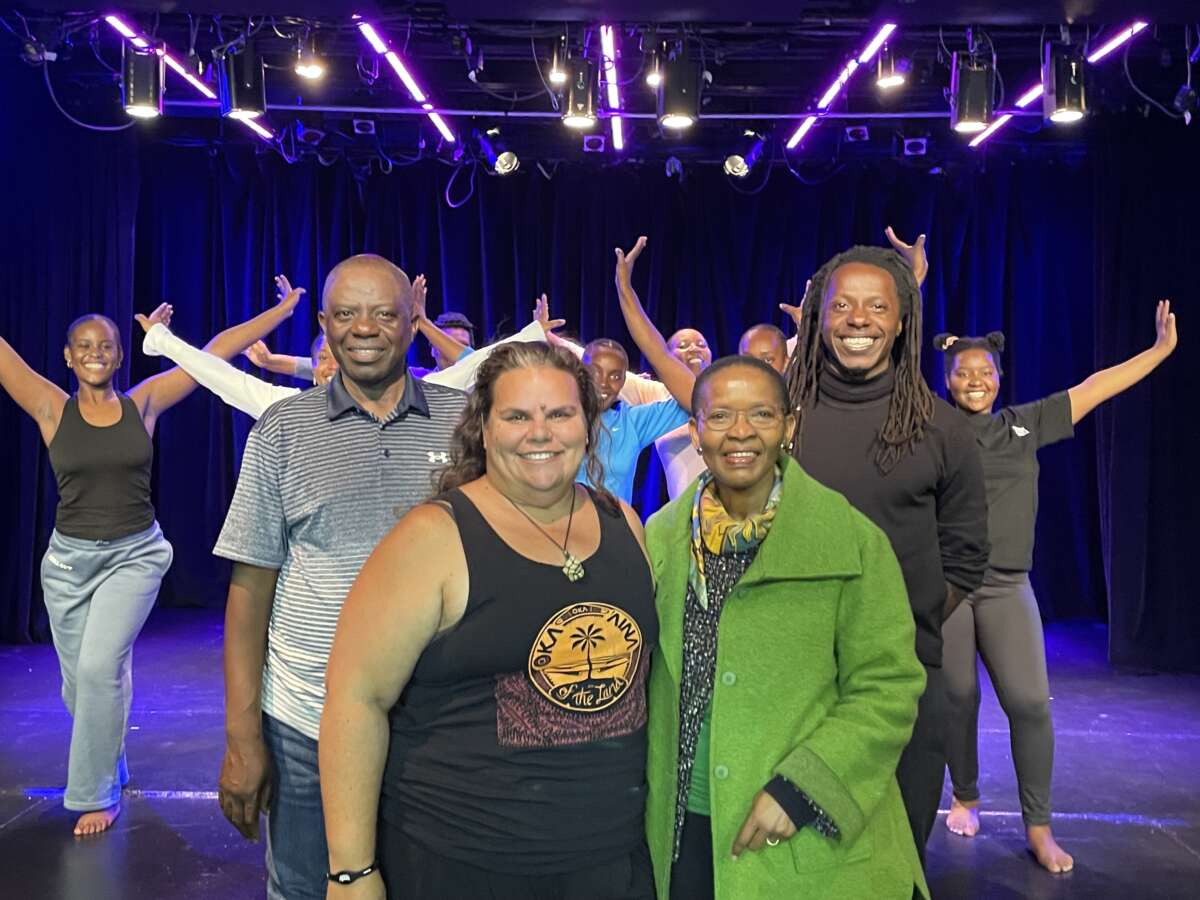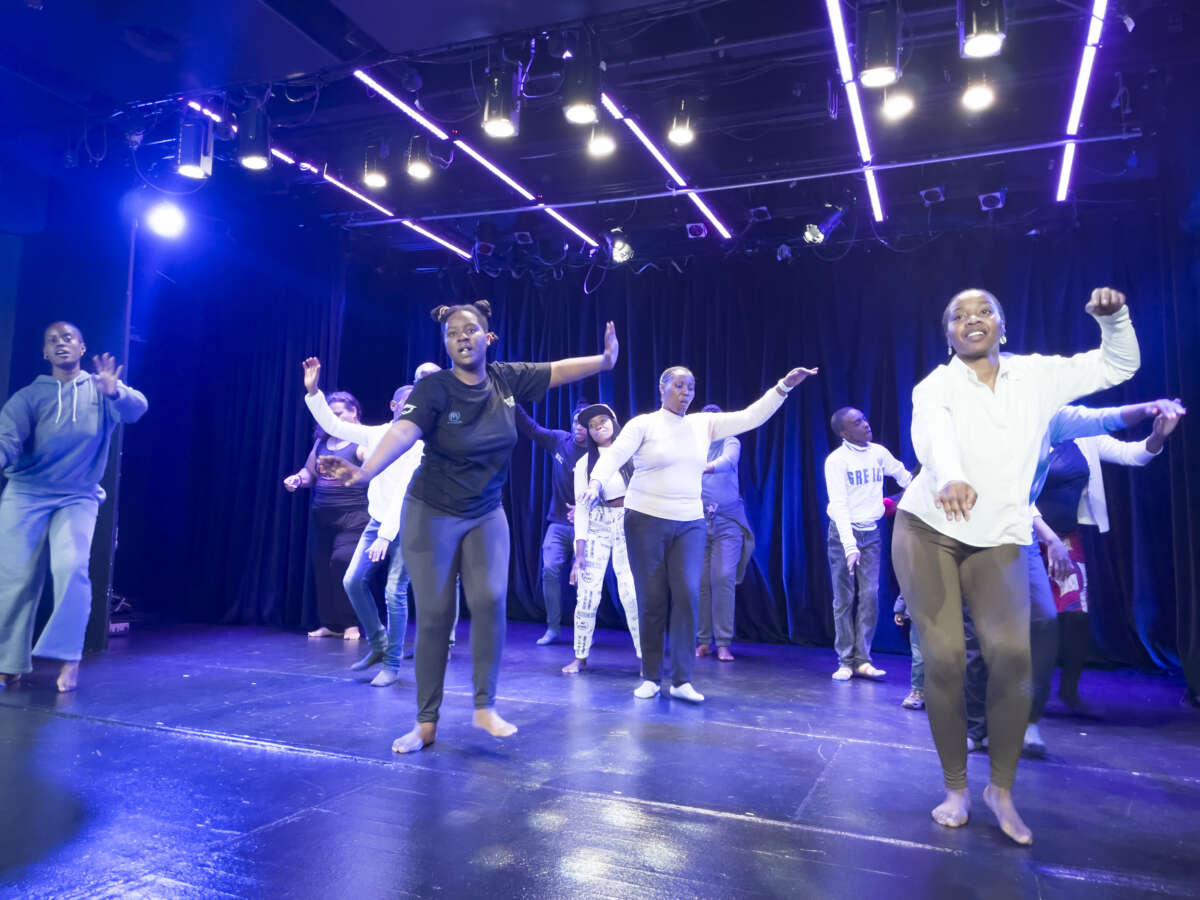Presented in partnership with the Australian High Commission to South Africa
Dialogues Across Violent Histories was a first of its kind creative project that explores the critical role that Australian, (South) African artists, and indigenous practitioners play in providing intersectional frameworks that respond to the shared issues of historical trauma, violent displacements, and loss. The event emerged out of the ongoing postgraduate research work by AVReQ fellow, Gratia Aimee Ilibagiza Mutabazi. Gratia a second year MA student in Social Anthropology at AVReQ whose research is interested to exploring identity, embodiment and belonging amongst Rwandan impunzi (refugees) who live in exile in South Africa. She explores these questions through her own experience as a traditional Rwandan dancer in her Johannesburg-based group, where she has been a member since 2004. The group has served as an important community building and healing space for Rwandans who have had to deal with the legacies and afterlives of the 1994 war in Rwanda. As part of her ongoing research work at AVReQ, Gratia discovered 2010 portraits captured by Australian photographer, Hamish Cairns, of Imanzi Rwandan Cultural group. The images are of group members and Founder, Cyprien Kagorora. Currently the images are held under copyright with the Queensland State Library in its public collections. The images were taken at a Brisbane cultural festival in one of the group’s first performances upon establishment, after Kagorora and his son Eric had just resettled in Australia from South Africa. Cyprien Kagorora is a key interlocuter in Gratia’s own research, having been a founding member of her own cultural group in Johannesburg, whilst still living in South Africa and taught her traditional dance. Prior to this he had establish Hoza Group in Kenya where he and his family spent some time living in exile after leaving Rwanda.
The significance of these images is in documenting and archiving one of the first African performing groups in Brisbane and the broader Australia, and their subsequent contributions towards using the arts for community building and fostering reparative ties between the local Australian community, aboriginal community, and African migrants. The cataloguing of these images in the public library provided a starting point, inspiration and visual archive that opened dialogues around artists whose work and bodies are at the intersections of the uses of indigeneity for healing, the generational continuities of knowledge, the transnational movements of histories across continents, and the dedicated quest to repair through time. Dialogues Across Violent Histories therefore aligns with the research interests of AVReQ and the active public scholarship and scientific engagement that is emerging from its student and research community. It offered an opportunity for workshopping and engaging through the experiences and expertise of cultural and community practitioners – who are connected across space and time by these themes.
The project was a successful example of the ways in which research and scholarship can be responsive in social and community impact transnationally. The dialogues, performances and workshops will presented what is common in both the (South) African and Australian experiences, as strategies of continuity that indigenous and historically marginalized people have established in their embodied practices to preserve themselves, their communities, and their endurance. The event was presented in multiple formats that included ritual ceremony, song, performance, and curated discussion presentations.
Dialogues Across Violent Histories aims to build on the profound impact of this inaugural event and the corresponding research, to develop a documentary output that will follow the narratives of the collaborators, participants and partners, as they reflect on the impact of the project and the ways in which their personal lived experiences have intersected with its themes.
Key themes that the program explored were:
– Indigeneity as an ontological relationship to place and land, and the ways art practitioners draw on this relationship in their work and its application to social cohesion.
– Transnationalism as the movement of people across political and social space, and how this creates opportunities for collaborative creative living which responds to historical displacement and dispossession.
– Intergenerational knowledge transmission and the relationships between elders and youth, and the strategies that emerge in creating continuities and connectedness.
Contributing artists and collaborators included: Kylie Marjambi Miles, Eric Kagorora, Cyprien Kagorora, Gaudence Uwizeye, Keituletse Gwangwa, Mandla Mlangeni, Nizenande Machi, El Hadji Ndong, Emmanuel Quaye, Goula Bienvenu Gorebi, Gihozo Cultural Group
Further Partners: Centre for the Study of Violence and Reconciliation (CSVR), We Al-Li, National Research Foundation, Department of Sports Arts and Culture, Imanzi Cultural Group Australia, I.Rugamba Initiatives, Huntha Gatharah, Gihozo Cultural Group, Karani Leadership.
